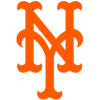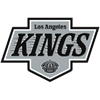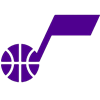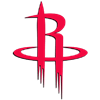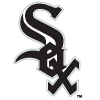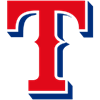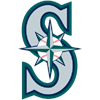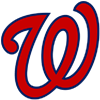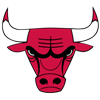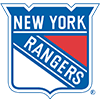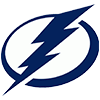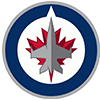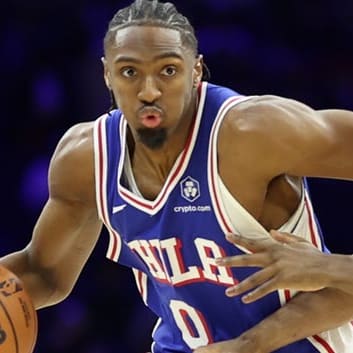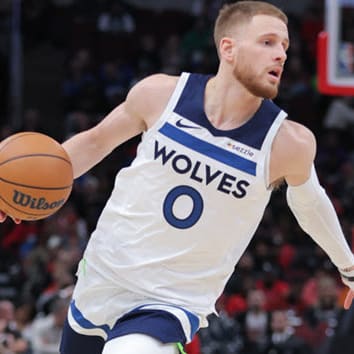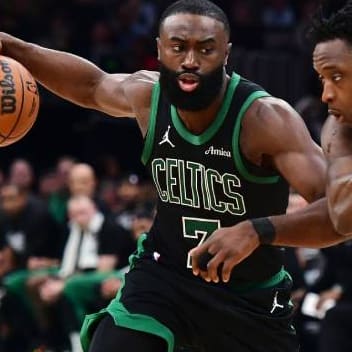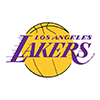 STATE OF THE FRANCHISE
STATE OF THE FRANCHISE
One thing is for certain – these aren't going to be the Showtime Lakers. Fresh off their worst season since 1957-58, things are decidedly gloomy in Los Angeles. General manager Mitch Kupchak was unable to re-sign free agents Pau Gasol, Jodie Meeks, Jordan Farmar, and Chris Kaman while letting Kent Bazemore, Kendall Marshall, and MarShon Brooks walk, clearing out roster space to attract a big name target. However, the Lakers struck out on luring Carmelo Anthony or LeBron James out west and instead turned their free-agency focus toward more middling objectives. Carlos Boozer was brought in via an amnesty waivers claim; Ed Davis was signed to an extremely team-friendly two-year, $2 million deal; and Jeremy Lin came to the team from a trade with the Houston Rockets, but none of these gains are likely to pull the Lakers out of the cellar of the Western Conference. Given that the Lakers will owe the Phoenix Suns their 2015 first-round draft choice if they finish outside the top five in the lottery next offseason, the incentive for the Lakers to attempt to be competitive is low, and a lot of the moves made this offseason tend to point to a bottoming out in 2014-15. With a new coach in Byron Scott, the healthy return of the face of the franchise in Kobe Bryant, and seventh overall draft choice Julius Randle giving the team hope for the future, the Lakers will definitely look a lot different this season, but whether or not that leads to more than the 27 wins is hard to project.
PLAYING TIME DISTRIBUTION
With Steve Nash (16-20 mpg) turning 40 years old earlier this year, and given the fact he played just 15 games last season due to various back and leg injuries, Jeremy Lin is the presumptive starter at point guard and looks to be in line for about 30-32 minutes per night. Rookie Jordan Clarkson will also see some time at the point, more so when Nash is forced to sit out due to rest or further injury. At shooting guard, Kobe Bryant will start, but it's unlikely he gets back right away to the 39 minutes he averaged when he was last healthy in 2012-13. Expect Bryant to get between 32-36 minutes per game this season. Nick Young, also in the mix to possibly start at small forward, will get some minutes at shooting guard behind Bryant and should see 26-30 minutes per game. Clarkson, along with Xavier Henry, will also see time at shooting guard. If Young does start at small forward, Wes Johnson (22-26 mpg) will be the major recipient of the backup minutes, providing defensive versatility to compliment Young's offensive strengths. In the frontcourt, there are a number of players vying for minutes. Carlos Boozer (24-28 mpg) and rookie Julius Randle (20-24 mpg) seem to be the major combatants for the power forward job, but regardless of who wins the starting position, both players should see solid court time. As things progress during the season, Randle could easily leapfrog Boozer's minutes and become the player Scott turns to at the four. Ryan Kelly is back after an impressive rookie campaign and will likely get any remaining minutes at power forward. At center, Jordan Hill will be the likely starter when the season kicks off and should see 26-30 minutes per game. Backing up Hill will be Robert Sacre (10-14 mpg) and Ed Davis (12-16 minutes), with Davis also seeing some time at the four.
PLAYER OUTLOOKS
Centers
Jordan Hill: Hill is coming off the best season of his five-year career, averaging 9.7 points and 7.4 rebounds in just 21 minutes per game under former coach Mike D'Antoni. D'Antoni mainly used Hill at power forward, switching him and Ryan Kelly as the starter, but with Gasol in Chicago and Kaman in Portland, Hill should be the team's starting center and be eager to live up to the two-year, $18 million contract he signed this summer. Last season, his extrapolated production was extraordinarily impressive. He averaged 16.7 points, 12.8 rebounds, and 1.6 blocks per-36 minutes, with an equally impressive 55 percent shooting from the field. One thing Hill does struggle with is his free-throw shooting, which is hardly uncommon for big men. He hit his free throws at a 69 percent clip last season on 2.5 attempts per game. It was only the second time in his five-year career that he has managed to stay reasonably healthy, playing 72 games last season. In the previous two seasons, he only suited up for 68 games total. Assuming he can stay healthy, Hill will be given every chance to lock up big minutes as the Lakers' pivot and will look to improve on the career-high numbers he put up last season in points, rebounds, steals, and blocks.
Robert Sacre: Sacre, a third-year veteran from Canada, took a significant step forward last season, playing in 65 games as the Lakers' frontcourt was decimated by injury. It was a significant step up from the 32 games he played in his rookie season, and Sacre also increased his productivity. In just 17 minutes of court time as the third-string center, Sacre averaged 5.4 points, 3.9 rebounds, and 0.7 blocks – all career-highs. As a seven-foot center, Sacre has a slightly disappointing field goal percentage, only shooting 48 percent last season, but that can be partially attributed to the fact that he took only 28 percent of his field goal attempts within three feet of the basket, much less than the 38 percent that he attempted from between 3-10 feet. If Sacre was able to position himself a little closer to the cup, a rise in field goal percentage would be expected, as he converted 68 percent of those shots within three feet last season. Even though the Lakers lost Gasol and Kaman this offseason, minutes won't necessarily be opening up for Sacre, as general manager Mitch Kupchak brought in Carlos Boozer and Ed Davis to compete for frontcourt minutes as well. With so many big men looking to get into the rotation, look for Sacre to play between 10-14 minutes this season, a slight drop off from last season.
Ed Davis: Davis has had an interesting career trajectory. Drafted in the lottery by the Toronto Raptors in 2010, Davis was finally starting to come into his own in 2012-13 before he was shipped to Memphis as a part of the Rudy Gay trade. In Memphis, he was an afterthought for two seasons and surprisingly signed for the veteran's minimum this offseason. When Davis was starting for the Raptors, he averaged 9.7 points, 6.7 rebounds, and 0.8 blocks in 24 minutes. In contrast, Davis was only able to manage 5.7 points, 4.1 rebounds and 0.7 blocks in 15 minutes last season, wedged behind Marc Gasol, Zach Randolph, and Kosta Koufos for much of the season. Although he played the majority of his time in Memphis at power forward, coach Byron Scott has said he would like to get Davis minutes at center and that Davis will be one of the options behind Jordan Hill. Davis should see between 12-16 minutes between the four and the five, but his game seems more suited to the center position. Last year, he took 52 percent of his shot attempts within three feet of the basket. He also converted 68 percent of those shots, so he can be a presence in the paint when given the minutes. If Hill succumbs to another injury, Davis could easily be thrust into the starter's role and would likely become a handy fantasy option in that scenario.
Forwards
Carlos Boozer: Despite the fact that Boozer was the recipient of an extraordinary amount of derision and ridicule last season, he is by no means washed up as a player. After his inevitable amnesty by the Chicago Bulls, the Lakers were able to acquire Boozer's services for the modest price of $3.2 million for this season. He should provide much-needed frontline leadership to what amounts to a very inexperienced group. Much of the criticism he faced last season was warranted as he suffered through his worst season since his rookie campaign, averaging only 13.7 points and 8.3 rebounds and shooting a career-worst 46 percent from the field. The Bulls sat Boozer in the fourth quarter of most games, when his suspect defense would be most vulnerable, and that resulted in him playing just 28 minutes per game. Even with a move to Los Angeles, not a lot figures to change. Boozer will likely play power forward to keep the position warm for prized rookie, Julius Randle and 28 minutes a night seems like a reasonable expectation for the 13-year veteran. At some stage this season, it's a definite possibility that we'll see Boozer have his starting role taken over by the talented rookie.
Julius Randle: The seventh overall selection of the 2014 NBA Draft was the earliest selection the Lakers have had in the draft since picking James Worthy number one overall back in 1982. In fact, when they chose Randle, it marked the first time the Lakers had made a first-round selection since taking Toney Douglas in 2009, and Douglas was immediately traded to the New York Knicks. So, with a lot of middling young talent on the team, Randle figures to be the face of the Lakers' future. Many thought Randle would be carrying a large load this season as the team's featured player down low, but with the acquisition of Boozer, Randle's development may be brought along a little slower. Over the course of this season, the big man from Kentucky will likely play around 20-24 minutes per night. Most people think Zach Randolph is his closest comp, but that's a lofty comparison to live up to, and as long as Boozer is taking some of his minutes, hopes for Randle's fantasy prospects as a rookie should be tempered.
Ryan Kelly: Kelly was a surprise contributor last season, after being selected 48th overall in the 2013 draft. He started 25 games last season for Mike D'Antoni's Lakers squad and was impressive in stretches as a big man who could knock down the three-ball. Kelly averaged 8.0 points, 3.7 rebounds, 0.8 three-pointers, and 0.8 blocks in 22 minutes per game last season and also converted his free throws at an 82 percent clip. His play seemed to suit D'Antoni's game plan perfectly, but with a new coach in town, his role is a little less defined. With Randle and Boozer also joining the team, Kelly will likely find it hard pressed to match the 22 minutes per game he played in his rookie season and could ride the pine for most of the season, getting between 8-12 minutes per game.
Wesley Johnson: Johnson is, in fact, the highest drafted player on the Lakers' roster. He was picked at fourth overall back in 2010 by the Minnesota Timberwolves. Johnson joined the Lakers last season after being waived by his second team (Phoenix Suns) while still on his rookie deal, something that is never a good sign for a young player. However, in Los Angeles, Johnson showed that he could play in the league and be a useful fantasy contributor. Johnson was one of only two players (Paul Millsap being the other) to average one block, one steal, and one made three-pointer last season. He finished his best NBA season averaging 9.1 points, 1.3 three-pointers, 4.4 rebounds, 1.1 steals, and 1.0 blocks in 28 mpg and was a useful contributor in all manner of fantasy formats. The return of Kobe Bryant will limit Johnson's playing time on the wing, but he should still be able to garner between 24-26 minutes a night. Johnson played some power forward last year and does have some size and skill to play the four, but the fact that the Lakers are so deep in the frontcourt will most likely force him to play almost exclusively on the wing. He'll likely battle Nick Young for the starting small forward job and could, yet again, be an unassuming source of hard-to-find fantasy stats.
Guards
Kobe Bryant: When it comes time for Kobe Bryant to lace up whatever iteration of his eponymous sneakers are current for the last time, the 2013-14 season will be nothing but a footnote to a spectacular career. Bryant, returning from a torn Achilles tendon suffered in April 2013, lasted just six games before he fractured his left tibial plateau in December. The disappointing part of his return is that the six games Bryant played were nowhere near the quality we expect from the Black Mamba. He averaged just 13.8 points, 4.3 rebounds, and 6.3 assists, with a huge 5.7 turnovers to boot. This season, with former teammate Byron Scott in charge and Bryant proclaiming himself 100 percent healthy, his fantasy outlook appears brighter. There's no doubt this is Bryant's team, and he should see his playing time climb back to his usual 32-36 minutes per game. In his last healthy season of 2012-13, Bryant averaged 27.3 points, 1.7 three-pointers, 5.6 rebounds, 6.0 assists, and 1.4 steals. It would be a little presumptuous to expect Bryant, now 36 years old, to produce at that level again, but on a team lacking in overall talent, he will surely have as many opportunities as he can handle.
Nick Young: If there was ever a player made to play under the lights in Hollywood, Nick Young would be that player. Playing in his hometown, Young posted the best season of his seven-year NBA career, averaging 17.9 points, 2.1 three-pointers, and 2.6 rebounds, making him a leading candidate for the Sixth Man of the Year Award. Young really got cooking as the season wound down, scoring 40 points twice in April, and averaging 3.9 three-pointers during that month. With Bryant back this season, the shot attempts may not be as voluminous for Young, but for a team bereft in offensive options, he will still be able to get shots up. Young may start at small forward and may reprise his sixth-man role from last season, but whatever his role will be, look for him to get between 26-30 minutes per game.
Xavier Henry:Xavier Henry, a former lottery pick in 2010, was playing on his third team during 2013-14 and responded by producing the best season of his disappointing career. The downside to his 2013-14 campaign was the fact that he missed 39 games with both knee and wrist injuries. The torn wrist ligament he suffered at the beginning of April ended his season prematurely, but he is expected to be fully fit for the start of training camp. Last season, Henry averaged 10.0 points, 2.7 rebounds, 1.2 assists, and 1.0 steals but struggled shooting the ball from both the field and the line, going at 42 percent and 66 percent respectively. Henry played both guard spots last season but will likely be the third or fourth option at both positions this season, restricting his usefulness in fantasy to the deepest of leagues.
Jeremy Lin: From the heights of Linsanity to the backing up of Patrick Beverley, the fall of Jeremy Lin was noticeable last season. That's not to say Lin had a bad season in his final go-around in Houston. It's just that, from the unsustainable hype in New York, things had fallen off somewhat. He burst onto the scene late in the 2011-12 season, but Lin's latest campaign was his worst. Lin still managed to average 12.5 points, 1.2 three-pointers, 4.1 assists, and 1.0 steals in 29 minutes off the bench, and he played alongside Beverley for a lot of the time on a playoff team in Houston. Now in Los Angeles, on the final year of his three-year, $25 million deal, Lin will have every chance to be a part of the starting backcourt with Kobe Bryant and should be in a great position to improve on last season's numbers. With the only competition being a facsimile of Steve Nash, Lin should look to contribute 30-32 minutes a night and could benefit playing next to a legend in Bryant. Fantasy owners would be wise to keep an eye on Lin during drafts this season.
Steve Nash: The Steve Nash experiment was one the Lakers had to try, but sadly, it has not worked out for the Lakers and Nash's career is down to its final hours. Last season, he managed just 15 games played due to persistent nerve root irritation in his back and leg injuries that lingered from 2012-13 when he played in just 50 games. Even in the games Nash managed to suit up for, he only played 21 minutes per game, averaging a paltry 6.8 points and 5.7 assists. Even his usually-exemplary field goal percentage took a significant hit, dropping from 50 percent to 38 percent. Nash is in the final year of his contract, and possibly his career, and he'll likely be relegated to a backup role behind newly-acquired Jeremy Lin. Nash will likely get around 16-20 minutes per night. If his injuries persist and continue to be a problem, it is very likely that there will be plenty of games in which Nash does not even suit up at all.
Jordan Clarkson: Clarkson was perhaps the most impressive of the Lakers' two 2014 draft picks at the Las Vegas Summer League. The Lakers acquired Clarkson from the Washington Wizards in exchange for cash considerations in the second round, and whenever a team ponies up cash to grab a second-round player, you can be sure that the general manager sees something valuable. In Las Vegas, Clarkson averaged 15.8 points and 5.0 rebounds, projecting him as a combo guard in which he will see time at both point guard and shooting guard. This season, behind Jeremy Lin, Steve Nash, Kobe Bryant, Nick Young, and Xavier Henry, minutes will be sparse, but with the impending retirements of Nash and Bryant, along with Lin's expiring deal, Clarkson could be a name to watch in dynasty fantasy formats.
SLEEPER
Jordan Hill: Hill was able to be productive in limited minutes last season, and all of the buzz coming out of Los Angeles is that he will be the team's starting center this season. He's an energetic rebounder, effective scorer, and towering shot-blocker, making his value likely to exceed his draft position when the season is said and done.
BUST
Kobe Bryant: There's a certain attraction with big name players, and there's hardly a bigger name than Kobe Bryant. Bryant's draft stock will likely be elevated by his legion of fans, but it's unlikely that at the age of 36 he can return to the elite level of play he has showcased throughout his career. It would be wise to steer clear of Bryant in the early rounds, where he will undoubtedly be drafted this season.







